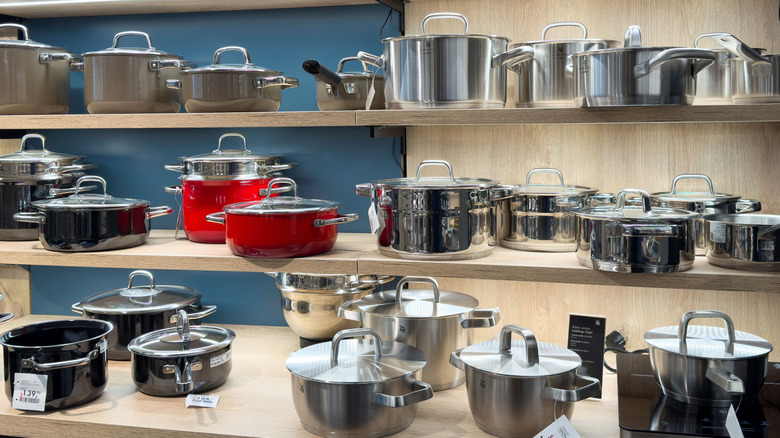The Cookware Trend to Skip (& a Superior Option to Try)

The Truth About Non-Stick Cookware and Health Risks
Non-stick cookware has long been a staple in many kitchens, praised for its convenience and ease of use. However, concerns about its safety have sparked a growing debate among health experts and home cooks. While it may not be entirely harmful, there are valid reasons to consider replacing your non-stick pans with a safer alternative.
Most non-stick pans are coated with a chemical called polytetrafluoroethylene (PTFE), commonly known as Teflon. This material is often referred to as a "forever chemical" because it does not break down easily in the environment. While it makes cooking and cleaning easier, PTFE can degrade over time due to high heat, scratches from utensils, or general wear and tear. When this happens, small particles of the coating can flake off into your food, potentially leading to ingestion.
Although some guidelines suggest that proper care—such as avoiding metal utensils, not leaving pans on high heat for extended periods, and storing them correctly—can minimize these risks, the issue remains significant. It's also important to note that non-stick pans should not be stored in oven drawers, as stacking or exposure to residual heat can accelerate the breakdown of the coating.
A Safer Alternative: Cast Iron Pans
For those looking to move away from non-stick cookware, cast iron pans offer a natural and durable alternative. Unlike PTFE-coated pans, cast iron is free from synthetic chemicals and can even provide a source of dietary iron. With regular use, cast iron develops a natural seasoning layer that gives it a non-stick surface similar to that of traditional non-stick pans.
Cast iron pans are also incredibly versatile, capable of handling a wide range of cooking tasks—from searing steaks to baking cornbread. They can transition seamlessly from the stovetop to the oven and can last for generations with proper care.
How to Care for Your Cast Iron Pan
Caring for a cast iron pan is simpler than many people believe. It’s essential to avoid using soap when cleaning, as it can strip away the seasoning. After washing, the pan should be thoroughly dried to prevent rust. A light coat of oil should be applied after each wash to maintain the seasoning.
When it comes to cleaning, harsh scrubbers and strong detergents should be avoided. Instead, many chefs recommend using a simple method like rubbing salt onto the pan with a soft cloth. This helps remove residue without damaging the seasoning.
Why Cast Iron Is a Smart Investment
Beyond its safety and durability, cast iron offers long-term value. While it may require some initial effort to season and maintain, the benefits far outweigh the costs. It’s an investment that pays off over time, making it an ideal choice for anyone looking to reduce their exposure to potentially harmful materials while enjoying reliable and versatile cookware.
If you're ready to make the switch, there are plenty of options available, including pre-seasoned cast iron skillets that are ready to use right out of the box. Whether you're a seasoned chef or a home cook, cast iron provides a safe, effective, and timeless solution for your kitchen needs.